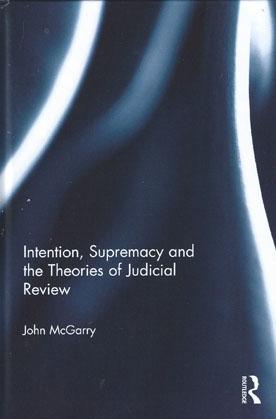
In the late 1980s, a vigorous debate began about how we may best justify, in constitutional terms, the English courts’ power to judicially review the exercise of public power derived from an Act of Parliament.
Two rival theories emerged in this debate: the ultra vires theory and the common law theory. The debate between the supporters of these two theories has never satisfactorily been resolved and has been criticised as being futile.
This book critically analyses the ultra vires and common law theory and argues that neither offers a suitable explanation for the courts’ judicial review jurisdiction.
McGarry argues that this new conception of parliamentary supremacy leads to an alternative theory of judicial review which significantly differs from both the ultra vires and common law theories.